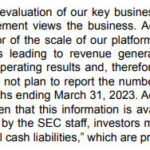The legal landscape surrounding the cryptocurrency industry is shifting, especially with recent developments concerning Roman Storm, a developer linked to Tornado Cash. On Thursday, the U.S. Department of Justice (DOJ) announced that it would drop a portion of the charges against Storm related to money transmitter business registration rules, as a result of a new policy directive. However, significant allegations related to money laundering and sanctions violations remain on the table, with a trial scheduled to commence on July 14, 2025.
“The prosecution is consistent with the letter and spirit of the April 7, 2025 Memorandum from the Deputy Attorney General,” the DOJ wrote in a letter to the presiding judge in the case.
The memo, crafted by Deputy Attorney General Todd Blanche, instructs prosecutors to be cautious with cryptocurrency cases, especially when regulatory standards seem ambiguous. This shift is underscored by a similar request from prosecutors in a separate case against the developers of the crypto mixer Samourai Wallet, who are also reconsidering their approach in light of the new guidance.
In the context of this evolving narrative, Brian Klein, representing Storm, expressed his belief that the case against his client is unfounded. Speaking at the CoinDesk Consensus 2025 conference in Toronto, he argued that bringing charges under these circumstances poses a risk to the broader crypto sector. His firm emphasizes that computer code should be viewed through the lens of free speech protections, drawing parallels to other forms of creative expression.
“Its dismissal would be consistent with the policies of the Trump Administration and the principles outlined by the Department of Justice in its recent cryptocurrency guidance memo,” Klein stated.
As this case unfolds, it reflects broader tensions in the regulation of the cryptocurrency industry, highlighting the delicate balance between enforcing the law and fostering innovation in a space that is still largely uncharted territory. With the trial date set for 2025, all eyes will be on how these legal proceedings could shape the future of digital currencies and blockchain technology.

Impact of DOJ’s Decision on Tornado Cash Developer Roman Storm
The recent decision by the U.S. Department of Justice (DOJ) regarding Roman Storm, a developer of Tornado Cash, has important implications for the cryptocurrency industry and legal precedent concerning digital asset regulations. Here are the key points:
- Partial Dismissal of Charges
- The DOJ will not pursue a charge against Storm for failing to comply with money transmitter business registration rules.
- This change comes as part of a broader memo aimed at reducing unclear regulations and avoiding “regulation by prosecution.”
- Ongoing Prosecution
- Storm still faces allegations related to knowingly transmitting funds tied to criminal activity and conspiracy charges related to money laundering and sanctions violations.
- The trial is scheduled for July 14, 2025, indicating a prolonged legal battle ahead.
- Impact of the April 7 Memo
- Deputy Attorney General Todd Blanche’s memo instructs prosecutors to reconsider cases where regulations are unclear, potentially setting a precedent for future cryptocurrency-related prosecutions.
- This policy might influence both current and future cases against other crypto developers and projects.
- Legal Defense Perspectives
- Storm’s legal team argues that his prosecution poses a threat to the cryptocurrency industry by infringing on free speech rights associated with coding.
- They emphasize that coding should receive similar protections as traditional forms of expressive activities.
- Industry Reactions
- Brian Klein, Storm’s attorney, suggests that dismissing this case aligns with prior policies and recent DOJ guidance regarding cryptocurrency.
- The case’s outcome could set important legal standards affecting how cryptocurrency developers operate and are regulated in the future.
Comparing Legal Battles in the Crypto Space: The Case of Tornado Cash and Beyond
The recent decision by the U.S. Department of Justice (DOJ) to drop part of the count against Tornado Cash developer Roman Storm highlights significant trends and challenges in the rapidly evolving cryptocurrency legal landscape. This is particularly relevant when we compare it to similar cases that have emerged, such as those involving crypto mixer Samourai Wallet and others operating in the decentralized finance (DeFi) sector.
Competitive Advantages: One notable positive aspect of the DOJ’s decision with regard to Storm is its alignment with recent shifts in regulatory guidelines. The April 7, 2025, memo from Deputy Attorney General Todd Blanche signals a shift towards clearer regulations and a more cautious approach to enforcement. This change could potentially benefit developers and innovators in the cryptocurrency space by providing a more predictable legal environment. The fact that prosecutors are reconsidering ongoing cases, like that of Samourai Wallet, indicates a broader recognition of the complexities inherent in crypto regulation. For businesses and developers operating in the DeFi ecosystem, this may pave the way for more freedom to innovate without the looming fear of prosecution based on ambiguous regulations.
Disadvantages: On the other hand, while the dropping of certain charges suggests a more lenient stance, the continuation of serious allegations against Storm also underlines the ongoing challenges within crypto regulations. The DOJ’s determination to proceed with charges related to conspiracy and money laundering may instill fear among cryptocurrency developers, particularly those creating privacy-oriented technologies. The complexities of compliance and the potential for misinterpretation of laws can create a chilling effect on innovation. Furthermore, with high-profile cases like Storm’s, there is a risk of building public stigma against certain aspects of cryptocurrency, which may deter potential investors and partners.
For industry advocates and innovators, a mixed bag of regulations can both spur opportunity and create hurdles. Developers who prioritize transparency and regulation-friendly practices may feel emboldened, while those working on more privacy-focused solutions could find themselves under scrutiny. As attorney Brian Klein noted, the defense arguments around coding as free speech raise intriguing questions about the intersection of creativity and legality in software development. Indeed, the implications of this case extend beyond its immediate context, potentially shaping the future landscape for crypto regulation and innovation.
Ultimately, while the DOJ’s recent moves could ease some pressure on developers like Roman Storm, the existing legal framework continues to pose significant challenges—and opportunities—for the broader cryptocurrency industry.
















